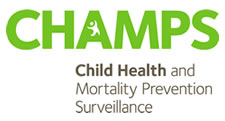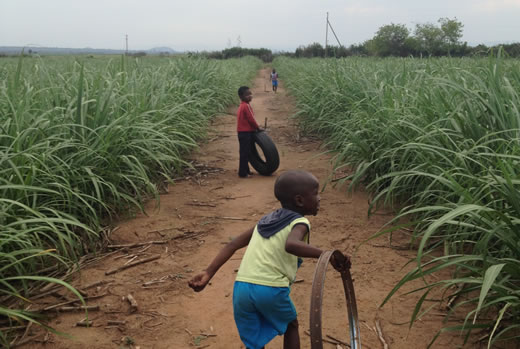Every year, nearly six million children under the age of five die, mostly from preventable circumstances including pneumonia, diarrhea and malaria — and primarily in the world’s low- and middle-income countries. Today, organizations in three nations have announced their partnership in an initiative to better understand and prevent the causes of child mortality.
The Child Health and Mortality Prevention Surveillance (CHAMPS) Network, through support from the Bill & Melinda Gates Foundation, aims to ascertain the causes of illness and death for children under five years old. CHAMPS — which includes the Emory Global Health Institute, the U.S. Centers for Disease Control and Prevention (CDC), the International Association for National Public Health Institutes (IANPHI), the Public Health Informatics Institute at the Task Force for Global Health, and the Barcelona Institute for Global Health (ISGlobal) — has finalized contracts for its first three sites: Soweto, South Africa; Manhiça, Mozambique; and Bamako, Mali.
“In order to reduce preventable childhood mortality, we need more definitive data on cause of death. By establishing sites like these and engaging a range of partners – both in these countries and around the world – CHAMPS will be able to gather comprehensive, actionable data about how, where and why children are dying,” says Dr. Jeffrey P. Koplan, vice president for global health at Emory University, and CHAMPS’ principal investigator and executive director.

CHAMPS selected these initial sites through an intensive process, which was driven by criteria such as an under-five mortality rate of more than 50 deaths per 1,000 live births; a population of at least 100,000 people; acceptance of common protocols; and willingness to share both data and specimens with CHAMPS, its partners and other stakeholders around the world.
Partner organizations in these first three CHAMPS sites include the University of the Witswatersrand in South Africa; the Manhiça Health Research Centre in Mozambique; and the Center for Vaccine Development in Mali.
“Protecting children from illness and preventable death is one of the highest callings in public health,” says Dr. Rebecca Martin, director of CDC’s Center for Global Health. “And that’s why CHAMPS is so important. The data from CHAMPS will provide new tools to better protect children from preventable diseases. Six million preventable deaths each year is a reality none of us can accept. CDC is proud to work with Emory and the governments of South Africa, Mozambique and Mali on this important effort that will change that reality and provide healthier futures for millions of children and their families.”
CHAMPS focuses on countries in southern Asia and Sub-Saharan Africa. More than 82 percent of global under-five deaths occur in these regions, and children in Sub-Saharan Africa are 15 times more likely to die before the age of five than children in high-income countries.
Reducing under-five mortality is a key objective for global development initiatives, including the United Nations Sustainable Development Goals, but the world currently faces significant gaps in health surveillance, research and cause-of-death determination. CHAMPS helps train local site staff and build surveillance infrastructure to support a field-based, data-driven approach to understanding the causes of under-five mortality.
Data from CHAMPS sites will be shared with scientists, health officials and others around the world to help inform and catalyze advocacy, research and other actions. As part of the CHAMPS Network, IANPHI will work with governments, Ministries of Health and National Public Health Institutes to facilitate use of CHAMPS data for country-led public policy and health interventions.
“Parents who lose a child deserve to know why, so they can prevent other deaths in the family and community. And, so do health officials and policy makers, since no child should die of a preventable cause,” says Dr. Robert F. Breiman, director of the Emory Global Health Institute, and CHAMPS’s co-principal investigator and director for science. “CHAMPS will work with these three initial sites – and many more in the coming years – to gather accurate, timely data about the causes of child mortality.”
CHAMPS is envisioned as a long-term program that will take place at up to 20 sites with high child mortality. Over the coming months, the CHAMPS Network will welcome additional sites in southern Asia and Sub-Saharan Africa to expand collection and sharing of data to help save young lives.

